Conservation in Action: Service Learning with Farmer Frog in the Pacific Northwest
- Caleb Mullenix
- Oct 21, 2025
- 5 min read
Preparing students for meaningful conservation service learning in the Pacific Northwest requires strategic planning that connects agricultural education with broader ecological understanding. Farmer Frog, a nonprofit agriculture education program based in Snohomish, Washington, provides an exceptional foundation for students to engage in hands-on conservation work while exploring the interconnected ecosystems that define the Pacific Northwest's remarkable biodiversity.
Understanding Farmer Frog's Conservation Mission
Establish clear expectations with your students about Farmer Frog's unique approach to conservation education. This 501(c)3 nonprofit organization demonstrates how sustainable agriculture serves as a cornerstone of environmental stewardship, operating on sacred Coastal Salish lands with deep respect for Indigenous wisdom and traditional ecological practices.
Farmer Frog's educational philosophy centers on agroecology principles that honor the interconnectedness of farming systems with surrounding ecosystems. Students participating in service learning opportunities will engage with living classrooms that include:
Aquaponics greenhouses showcasing symbiotic relationships between fish and plant systems
Food forests that support biodiversity while producing perennial food crops
Demonstration plots highlighting regenerative agricultural techniques
Outdoor classroom spaces designed for workshops and collaborative learning
Livestock areas emphasizing humane animal care and sustainable practices
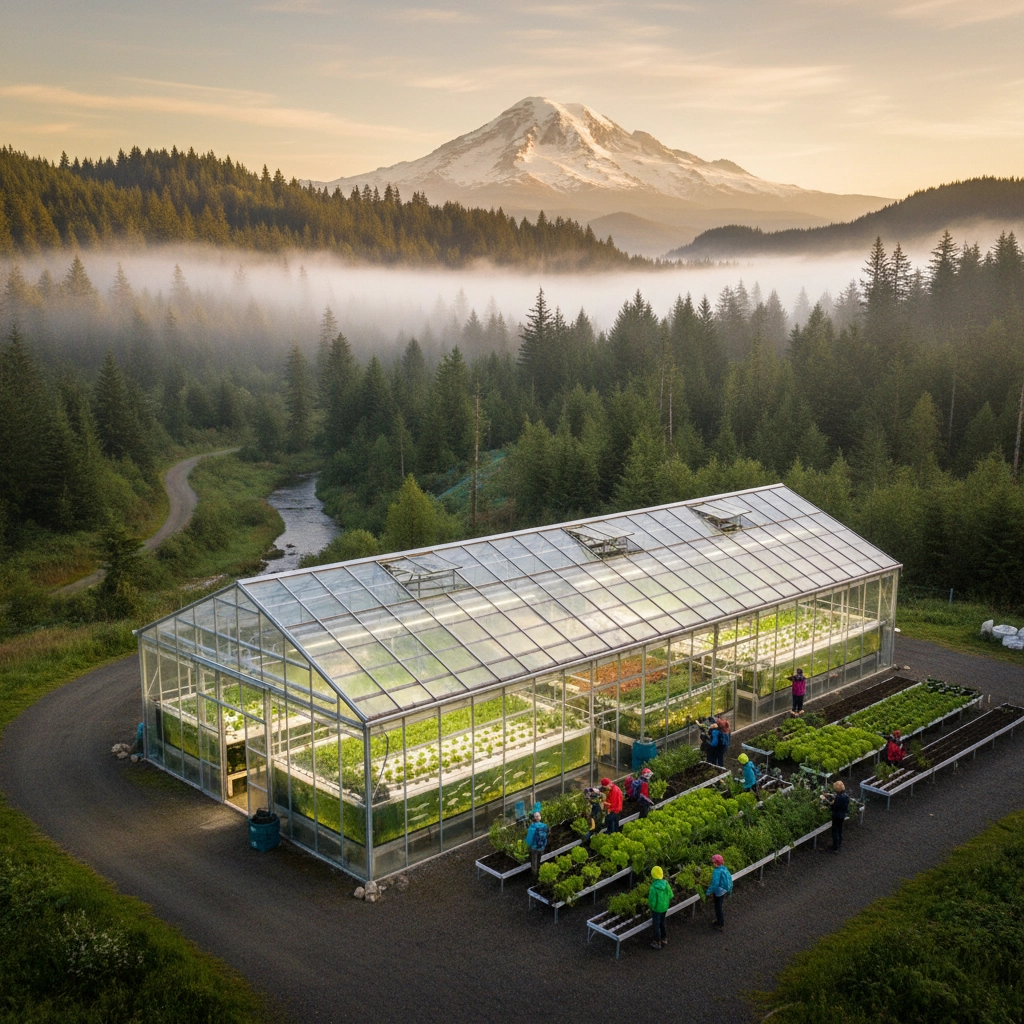
Connecting Agricultural Education to Pacific Northwest Ecosystems
Begin by establishing the broader ecological context that makes the Pacific Northwest an ideal laboratory for conservation education. The region's diverse ecosystems: from coastal temperate rainforests to alpine meadows: provide students with opportunities to observe how human agricultural systems can either support or disrupt natural ecological processes.
Encourage students to examine how Farmer Frog's sustainable farming practices mirror the ecological principles found in the region's natural systems. The organization's approach to wild farming and conservation agriculture produces nutritious food while preserving habitat for native wildlife species, demonstrating practical applications of ecological science in agricultural settings.
Expanding Conservation Learning Beyond the Farm
Prepare students for comprehensive conservation education by connecting Farmer Frog's agricultural focus with the broader Pacific Northwest conservation landscape. The region offers numerous opportunities for students to engage with different aspects of environmental stewardship:
Mount Rainier National Park Integration
Coordinate field experiences that allow students to observe volcanic geology and alpine forest ecosystems at Mount Rainier while understanding how agricultural practices in lower elevations impact watershed health. Students can examine how glacial melt and volcanic soil composition influence both natural ecosystems and agricultural productivity in the region.
Create learning objectives that help students understand the connections between alpine forest studies and sustainable agriculture practices. Emphasize how elevation changes affect growing seasons, precipitation patterns, and soil development: factors that directly influence both natural forest ecosystems and human agricultural systems.
Olympic National Forest Rainforest Ecology
Integrate visits to Olympic National Forest's temperate rainforest ecosystems to demonstrate the complex relationships between forest ecology and agricultural sustainability. Students can observe how old-growth forest systems manage nutrients, water cycles, and biodiversity: principles that inform sustainable agricultural practices at Farmer Frog.
Discuss how the Pacific Northwest's temperate rainforest represents one of the world's most productive ecosystems, supporting incredible biodiversity while maintaining long-term ecological stability. Encourage students to identify specific management principles from these natural systems that can be applied to sustainable agriculture and conservation practices.
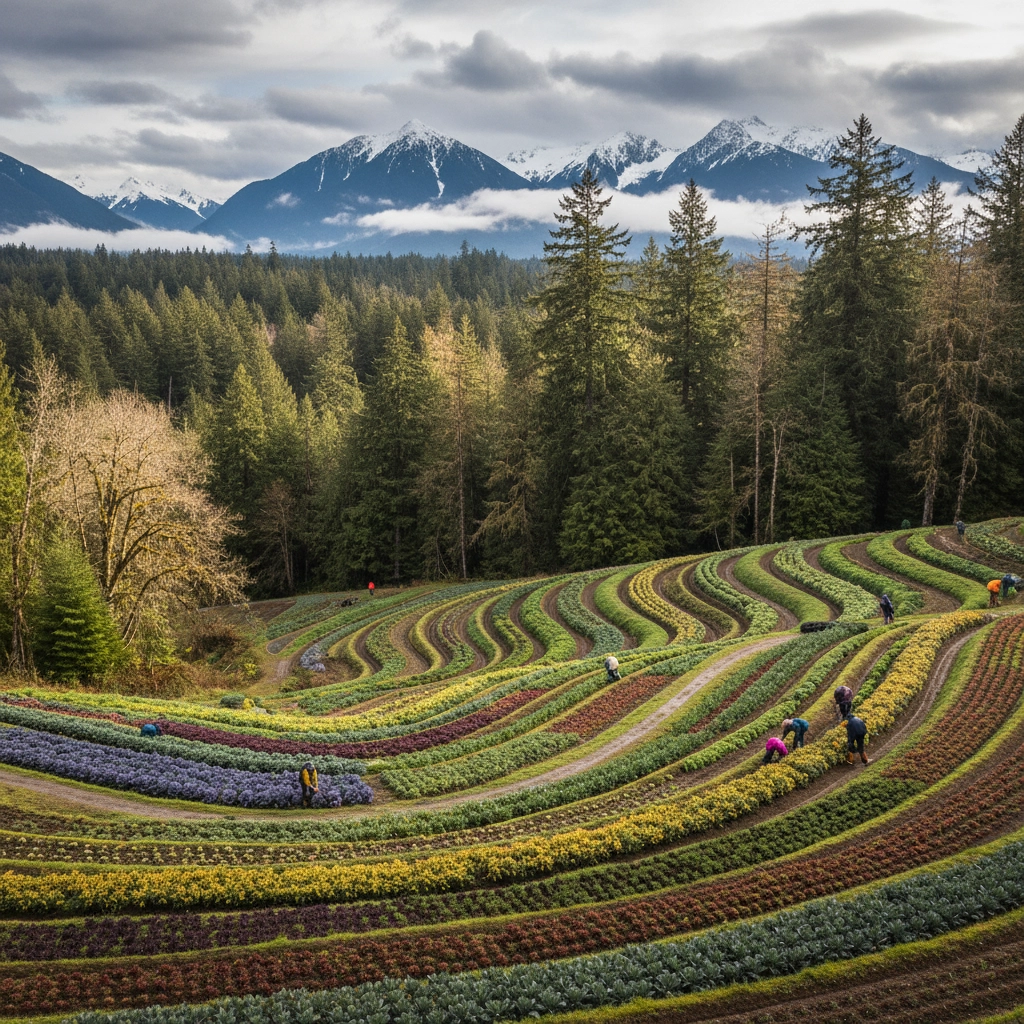
Wildlife Ecology in Northern Rainforest Systems
Establish learning objectives that help students understand how agricultural practices impact wildlife corridors and habitat connectivity throughout the Pacific Northwest. The region's northern rainforest ecosystems support diverse wildlife populations, from Roosevelt elk and black bears to numerous bird species and native amphibian populations.
Students working with Farmer Frog will learn how sustainable agricultural practices can:
Create habitat buffers that support wildlife movement between forest patches
Reduce chemical inputs that impact water quality and aquatic ecosystems
Maintain hedgerows and food forest systems that provide wildlife corridors
Support pollinator populations essential for both natural and agricultural systems
Emphasize the importance of understanding predator-prey relationships, seasonal migration patterns, and habitat requirements for native species when designing sustainable agricultural systems.
Earth Science and Volcanic Influences
Prepare students to understand the geological foundations that make Pacific Northwest agriculture unique. The region's volcanic history, particularly the influence of Mount Rainier and other Cascade Range volcanoes, has created exceptionally fertile soils that support both diverse natural ecosystems and productive agricultural systems.
Students should examine how:
Volcanic ash deposits create nutrient-rich soils ideal for sustainable farming
Glacial processes have shaped valley systems where agriculture thrives
Tectonic activity continues to influence watershed patterns and soil development
Climate patterns created by mountain ranges affect both natural and agricultural systems
Create opportunities for students to collect and analyze soil samples from both agricultural areas and natural forest systems, comparing nutrient content, pH levels, and organic matter composition.
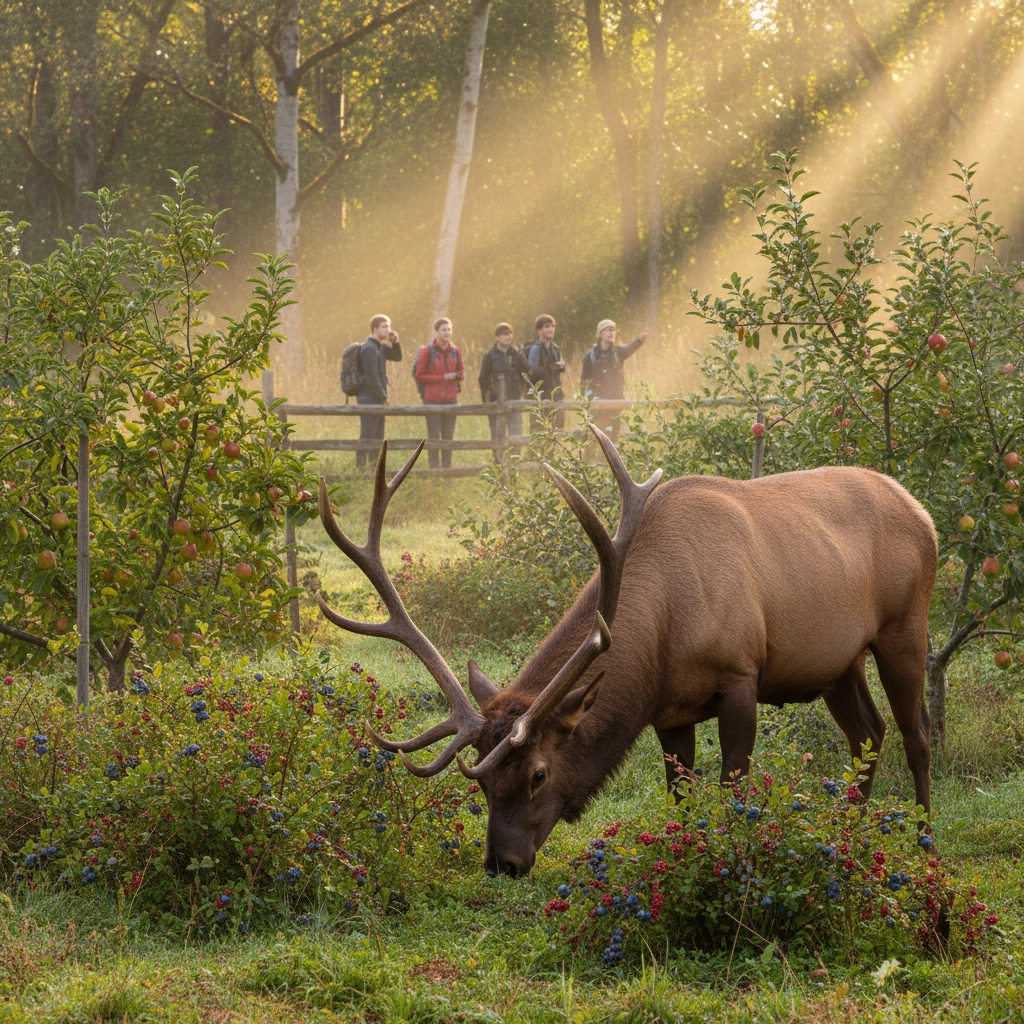
Service Learning Project Development
Structure meaningful service learning experiences that allow students to contribute directly to conservation efforts while developing practical skills in sustainable agriculture and environmental stewardship. Farmer Frog's volunteer opportunities provide students with hands-on experience in:
Agricultural Conservation Projects
Organize student participation in farm maintenance activities that demonstrate conservation principles. Students can engage in composting systems, water conservation irrigation setup, native plant propagation for food forest development, and habitat restoration work that connects agricultural areas with natural ecosystems.
Ensure students understand how each task contributes to broader conservation goals. Explain how proper composting reduces waste while building soil health, how efficient irrigation systems protect water resources, and how native plant integration supports local wildlife populations.
Community Education and Outreach
Develop opportunities for students to share their conservation knowledge with broader community audiences. Students can assist with educational programs for younger students, help develop interpretive materials for farm visitors, participate in community workshops on sustainable practices, and contribute to social media content that promotes conservation awareness.
Emphasize the importance of effective communication in conservation work. Students should practice explaining complex ecological concepts in accessible language while maintaining scientific accuracy.
Assessment and Reflection Strategies
Create comprehensive assessment approaches that measure both knowledge acquisition and practical skill development. Students should demonstrate understanding of ecological principles, agricultural sustainability practices, and the connections between human systems and natural ecosystems.
Encourage students to maintain detailed field journals documenting their observations of both agricultural and natural systems. Require students to identify specific examples of how sustainable farming practices support broader conservation goals and to propose additional conservation projects that could be implemented in agricultural settings.
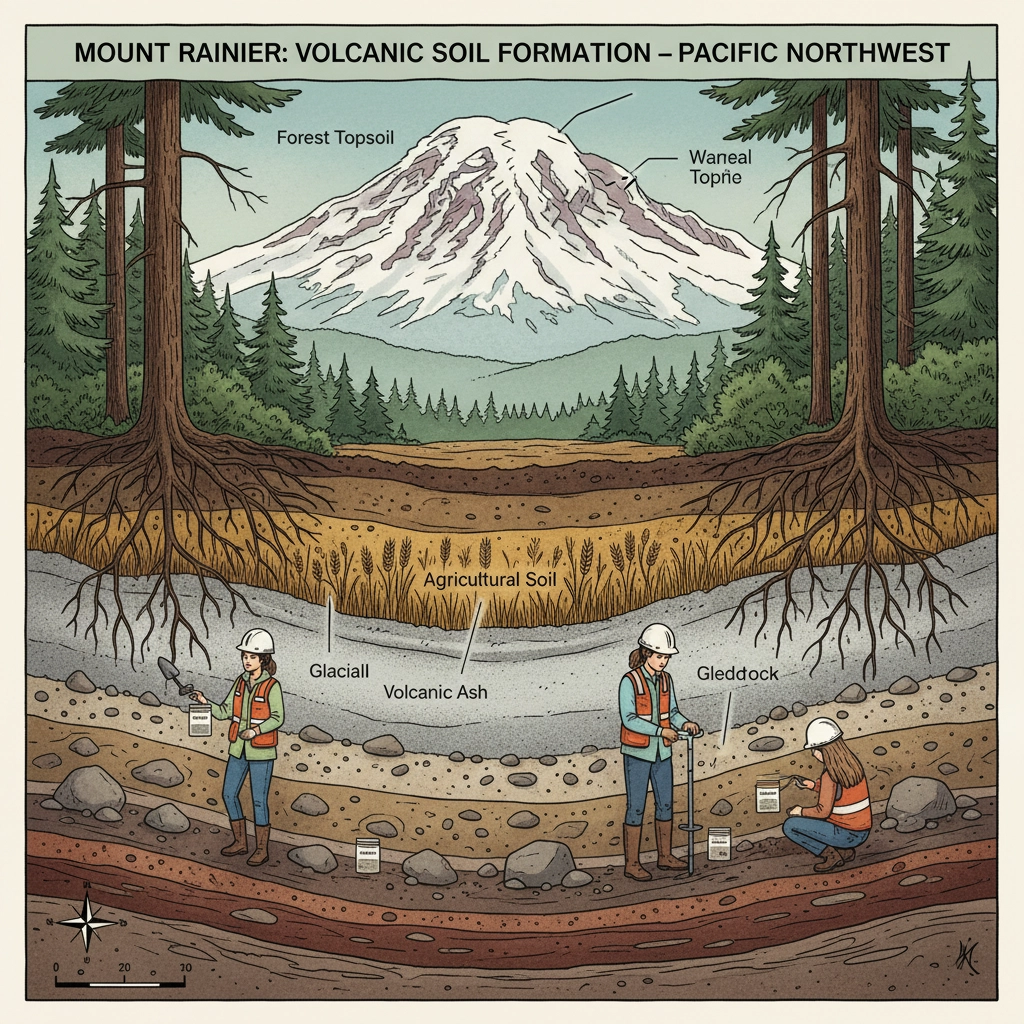
Safety Considerations and Risk Management
Implement thorough safety protocols for all field experiences and service learning activities. Farm environments present specific safety considerations including proper tool usage, awareness of livestock behavior, understanding of plant and pest identification, and recognition of weather-related risks in Pacific Northwest outdoor settings.
Ensure all students receive comprehensive safety orientations before beginning service work. Maintain constant adult supervision during all activities and establish clear emergency procedures for both farm-based and wilderness field experiences.
Long-term Impact and Career Connections
Connect service learning experiences with potential career pathways in conservation, sustainable agriculture, environmental education, and natural resource management. The Pacific Northwest offers numerous opportunities for students interested in pursuing environmental careers, from traditional forestry and agriculture roles to emerging fields in sustainability consulting and environmental technology.
Encourage students to maintain connections with Farmer Frog and other conservation organizations beyond their initial service learning experience. These relationships can provide ongoing volunteer opportunities, internship possibilities, and mentorship connections that support long-term engagement with conservation work.
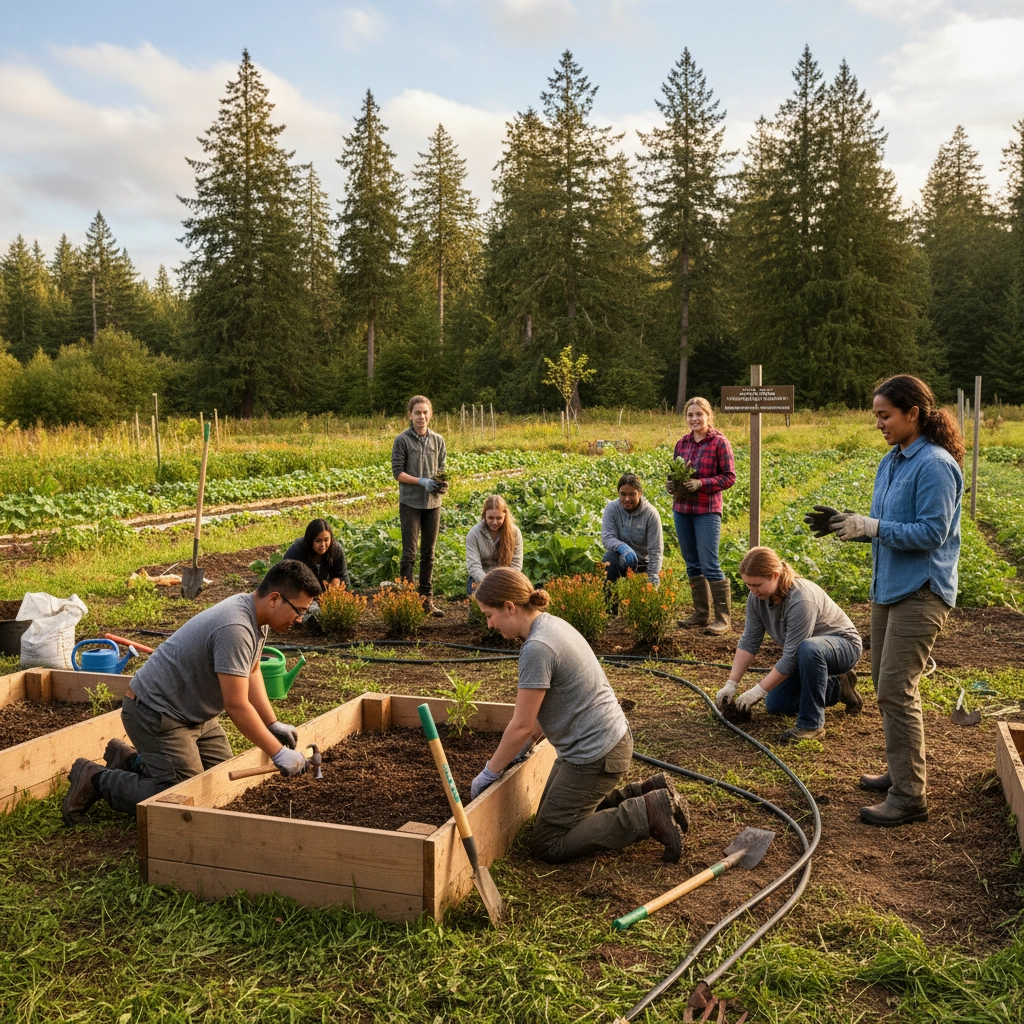
Service learning experiences with Farmer Frog provide students with foundational understanding of how human systems can support rather than degrade natural ecosystems. By connecting agricultural education with broader Pacific Northwest conservation efforts, students develop practical skills while gaining deep appreciation for the complex relationships between human communities and natural environments. These experiences prepare students to become informed environmental citizens capable of making positive contributions to conservation efforts throughout their lives.



Comments